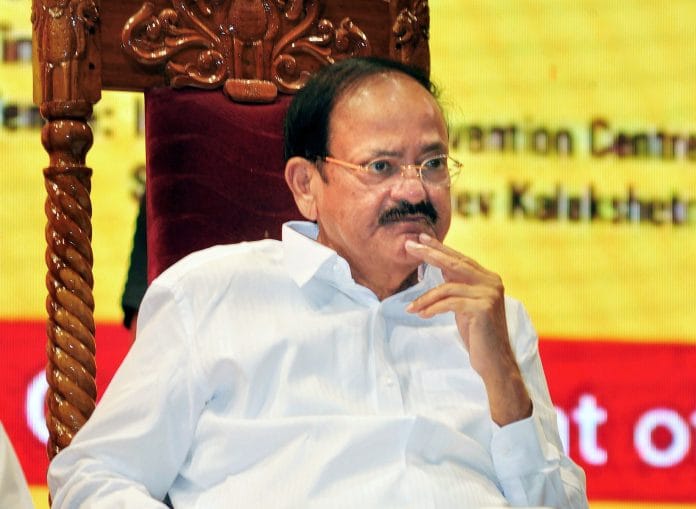P.K. Malhotra says Judges Inquiry Act of 1968 allows Chairman of the Rajya Sabha to hold consultations and arrive at a decision himself.
New Delhi: Rajya Sabha Chairperson Venkaiah Naidu’s decision to reject the opposition motion to impeach the Chief Justice of India is entirely tenable from the legal perspective, one of the experts consulted by the Vice-President, told ThePrint.
The statement by former law secretary P.K. Malhotra came as the Vice-President’s order was termed “partisan” by critics for what they see as its strong language.
“Section 3 of the Judges Inquiry Act of 1968 specifically empowers the Chairman of the Rajya Sabha to take a call when such a motion is received,” Malhotra said. “He is free to hold consultations and arrive at this decision himself,” he added, rejecting the claim that the chairman had no power to say the charges in question didn’t stand.
Section 3 of the law says that upon receiving such a motion, “the Speaker (of the Lok Sabha)… or the Chairman (of the Rajya Sabha) may, after consulting such persons, if any, as he thinks fit and after considering such materials, if any, as may be available to him, either admit the motion or refuse to admit the same”.
“The only thing,” Malhotra added, “is that in the past, such motions have been admitted.”
Asked if the Vice-President could have been less scathing in his order, Malhotra said the tenability of the material submitted was determined by the “subjective satisfaction” of the chairman.
In his 10-page order submitted Monday, Naidu said, “Conversations between third parties… with dubious credentials, which have been extensively relied upon, cannot constitute any material evidence against the holder of the office of the Chief Justice of India.”
“The Honourable Members of Parliament who presented the petition are unsure of their own case,” he added. The phrases used by them indicate “a mere suspicion, a conjecture or an assumption” that does not constitute “proof beyond reasonable doubt”.
“A remedy is already available for them (the Congress, which led the efforts to move the motion),” Malhotra said. “They can approach the Supreme Court, and their petition will be dealt with by the court like any other,” he added.
The Congress had said earlier it would move the Supreme Court if Naidu rejected the motion.
Asked about their deliberations, Malhotra refused to comment on the exact nature of his exchange with Naidu, calling it “privileged communication”.






